![Starting a Food Truck Business in Just 6 Simple Steps [2025] Starting a Food Truck Business in Just 6 Simple Steps [2025]](https://www.identixweb.com/wp-content/uploads/2025/08/01-08-Fri-Blog-Starting-a-Food-Truck-Business-in
Just-6-Simple-Steps-2025-1.webp)
Are you passionate about the food business and require a low-cost alternative to opening a restaurant? Starting a food truck business is perfect for food entrepreneurs like yourself.
The food truck industry has exploded in popularity over the past decade, and 2025 is no different. Currently, the food truck market size is a staggering USD 4.4 billion and is expected to grow at a CAGR of 6.5% till 2023.
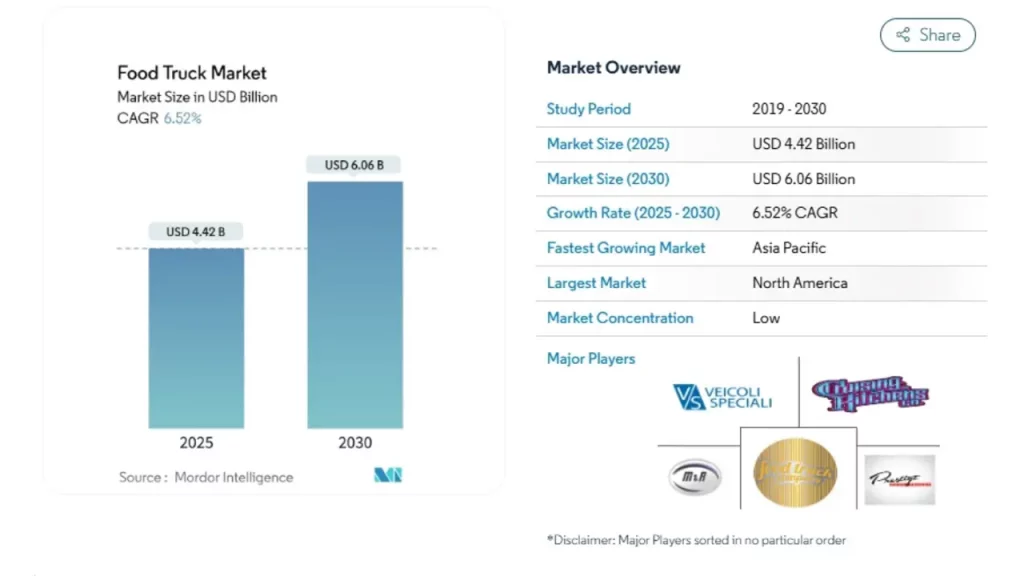
Starting a food truck business might seem challenging, but with the business plan in place, it’s easier than you think. Before we get into how, let’s start with why you should open a kitchen on wheels.
Benefits of Starting a Food Truck Business
Starting a food truck business offers numerous advantages, especially in 2025 when the demand for unique dining experiences continues to grow. According to our findings, millennials and Gen Z love unique experiences and fast service when it comes to food, and food trucks offer them just what they need.
Lower Startup Costs
Compared to traditional brick-and-mortar restaurants, you can save money on real estate, utilities, and décor. This makes it an accessible option for new entrepreneurs looking to start small.
Flexibility and Mobility
A mobile food business allows you to operate your business on the go, which means you can reach a wider audience and work in high-traffic locations.
Better Work-Life Balance
Operating a food truck offers control over your work schedule. You can set your hours and take breaks as needed, which often leads to a better work-life balance for food truck owners.
Simple Licensing and Regulations
Licensing requirements for food trucks, compared to those for brick-and-mortar restaurants, are often more straightforward.
Here’s a guide from the Food and Drug Administration in the USA to find the licenses required to open a kitchen on wheels.
Now that you understand the many benefits of starting a food truck business, let’s understand the steps required to open a profitable food truck venture.
Step-by-Step Guide to Open a Food Truck Business
Step 1: Develop a Food Truck Business Plan
Before you dive into how to start a food truck venture, have a solid food truck business plan.
Your plan should include:
- Your menu concept: What unique dishes will you offer, and how do they stand out from the competition?
- Target market: Who are your customers, and where will you find them?
- Financial projections: Outline your expected costs, revenue, and profits.
- Location strategy: Plan where you will operate, whether it's local festivals, office areas, or private events.
Step 2: Get the Right Licenses and Permits
One of the first legal steps in starting a food truck business is obtaining the necessary licenses and permits. This is where you will need to look into your local laws and regulations to get your food truck business license. This may include:
- Food handling permits ensure your operations meet health and safety standards. Following these rules also means using protective gear like vinyl gloves to keep food clean and safe while serving customers.
- Business registration is required to operate officially.
- Obtain vehicle permits and undergo inspection to ensure your truck is roadworthy.
- Special event permits are required if you plan to park at festivals or markets.
| License/permit | Purpose | Where to get it |
|---|---|---|
| Business registration | Legally operate your business | Local city or county office |
| Food Handler’s Permit | Ensure food safety compliance | Local health department |
| Vehicle Permit & Inspection | Approve your food truck for road use | DMV or equivalent state agency |
| Special Event Permit | Operate at festivals or public events | Event organizer or city special permits |
Step 3: Choose the Right Food Truck and Equipment
Choosing the right truck and customizing it with the proper kitchen equipment is crucial for your success.
Consider whether to buy a new or used food truck and ensure it can handle your kitchen equipment needs. Key equipment includes:
- Cooking appliances like grills, fryers, and ovens.
- Refrigerators and storage for fresh ingredients.
- Point of sale (POS) systems for handling orders and payments.
- Interactive menu board for displaying menu and promotions
Ensure the truck is large enough to accommodate all necessary appliances but still drivable for easy access to various locations. According to our estimates, the cost of a food truck can be anywhere between $50,000 - $180,000.
| Item | Estimated cost |
|---|---|
| Food Truck Price (used/new) | $50,000 - $180,000 |
| Equipment & Appliances | $10,000 - $30,000 |
| Permits & Licenses | $1,000 - $5,000 |
| Initial Inventory | $2,000 - $5,000 |
| Marketing & Branding | $500 - $3,000 |
Use platforms like eBay to purchase a food truck if you are low on funds.
Step 4: Design Your Menu and Test Recipes
Your menu is what will drive customers to your business, so spend time crafting it carefully.
Make sure to:
- Offer a diverse but manageable menu that suits your target audience and your kitchen capacity.
- Test your recipes to ensure they can be made efficiently while still delivering on taste and quality.
Having a food truck business plan that includes your menu will help you stay focused and streamline your business.
Step 5: Market Your Food Truck
Marketing is key to getting your food truck noticed, especially when you’re just starting a food truck business. Include the following tips to market your food truck.
- Develop a name, logo, and consistent design for your truck that reflects your food concept.
- Build an online presence with a website and social media accounts to share your location, menu updates, and promotions.
- Leverage food festivals, pop-up events, and collaborations with local businesses to increase visibility.
Effective marketing will help you draw in a loyal customer base and stand out in the growing food truck scene.
Step 6: Launch and Manage Operations
With everything in place, it’s time to launch your food truck!
Focus on providing great food and excellent customer service to ensure a successful opening. As you begin to operate your mobile food business, keep these tips in mind:
- Customer satisfaction should be your number one priority. Keep the wait times short and the food tasty.
- Monitor inventory levels and restock items as needed to avoid shortages.
Now that you have started your mobile food business, let’s get into some tips on how to run a successful one.
Tips for Running a Successful Food Truck Business
We have divided these best practices based on offline and online strategies to help you focus on both aspects of your business.
Offline Tips to Run a Profitable Food Truck Business
Choose the Perfect Location
We always suggest choosing high-traffic areas such as food festivals, business districts, or events with large audiences.
Offer Daily or Weekly Specials
Attract repeat customers by offering exciting specials on different days. This creates a sense of urgency, encouraging customers to visit often and try new menu items.
Partner With Local Businesses
Collaborate with nearby businesses for pop-up events or catering services. This can introduce your food truck to new customers and boost sales through local partnerships.
Implement Upselling Strategies
Encourage customers to buy add-ons like drinks, snacks, or desserts by offering combo deals or discounts. Upselling can increase the average transaction value and boost overall revenue.
Online Tips to Run a Profitable Food Truck Business
Build a Website
Create a website for your food truck venture where customers can find your menu, location, hours, and news about upcoming events or specials.
Platforms like Shopify help food truck owners by building a well-designed website, which can help build credibility, attract online orders, and serve as an additional marketing tool.
Shopify offers dedicated themes for food trucks with easy drag-and-drop features that is perfect for beginners.
Offer Local Pickup Options
Allow customers to place online orders and pick them up at your food truck. This can be especially beneficial in busy locations or areas with high foot traffic, where customers want to grab food quickly without waiting in line.
If you choose platforms like Shopify, its dedicated app store has more than 8000 apps to help enhance your business. Apps like Stellar Delivery Date & Pickup help your customers to place orders and pick them up from your food truck.
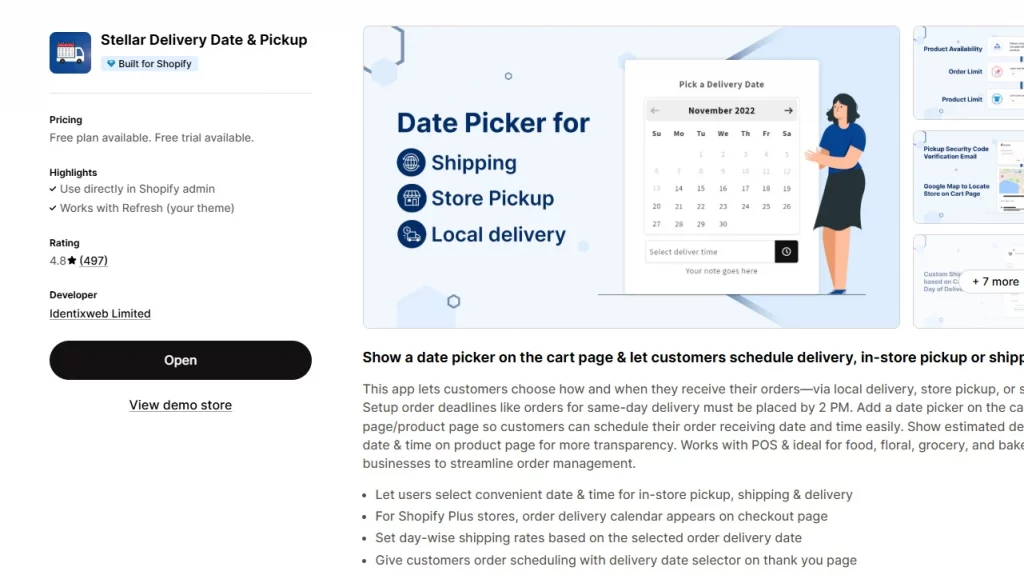
For example, if your food truck is currently located at California A, you can enable the store pick-up option for this location and disable the others. If you are at California B tomorrow, allow the store pick-up option for this location and disable the rest.
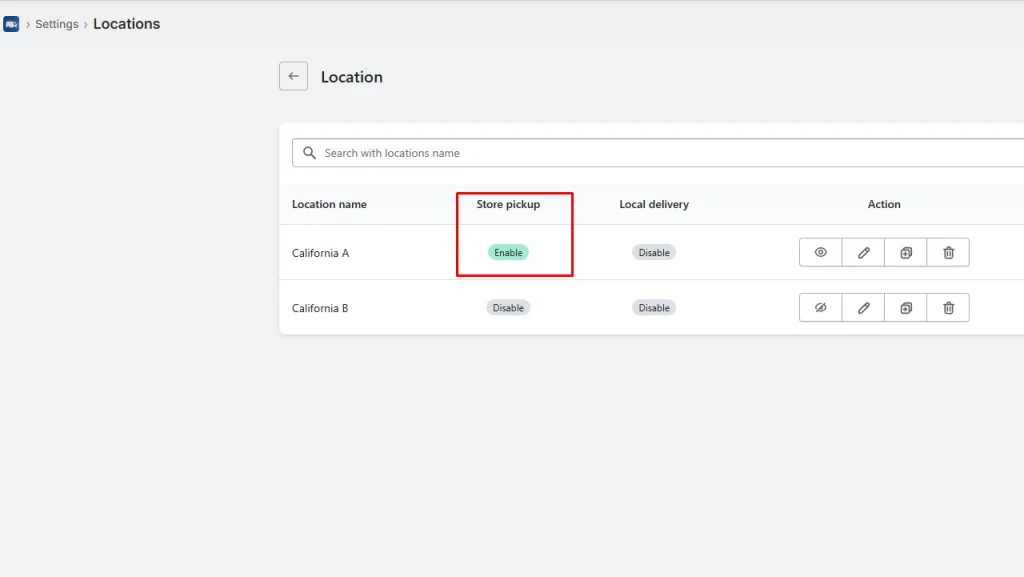
Stellar allows you to add multiple locations, enabling customers to easily select a time that suits their convenience for pre-ordering food and picking it up from your food truck.
Food Truck Business Success Story
Roll Up Food Truck is a great success story in this department. Its founder started by selling gourmet egg rolls from a trailer in Colorado and slowly expanded the business into multiple locations. Today, Roll Up Food Truck has also opened restaurants and earns more than $600k/year.
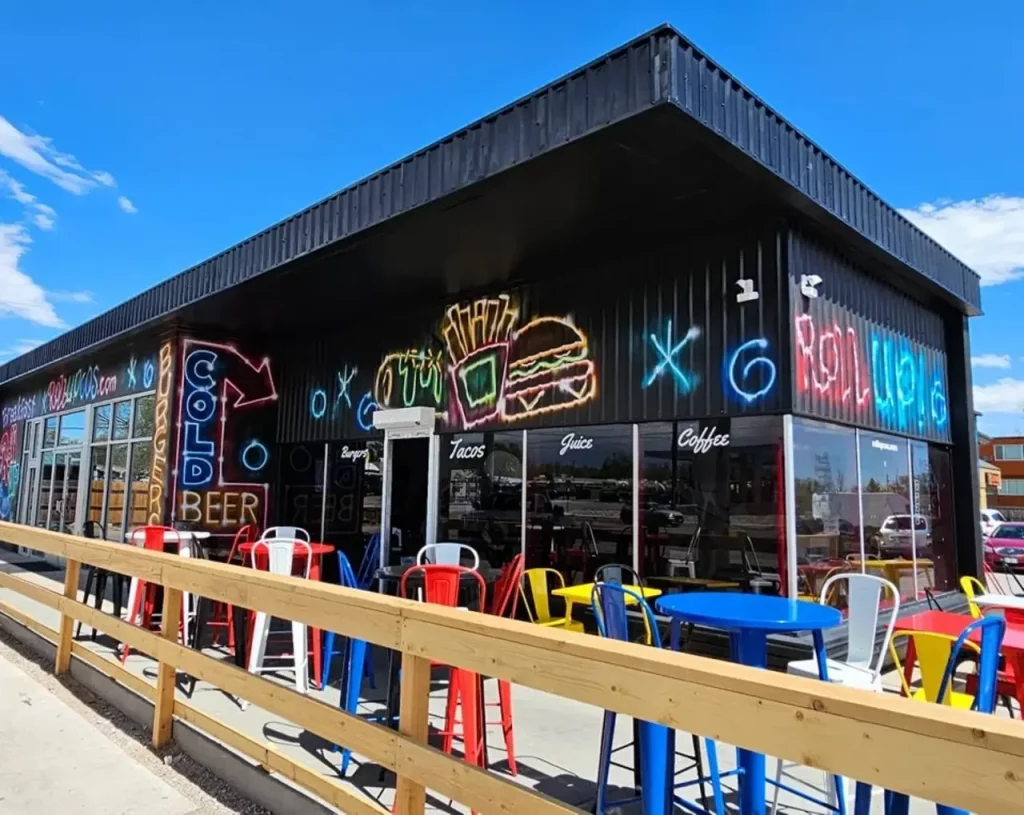
Here’s a list of trending food truck business ideas you can start in 2025.
The Best Food Truck Business Ideas in 2025
Now that you have gone through the steps and the tips for starting a food truck business, let’s give you some examples of great food truck business ideas.
Plant-Based and Vegan Food Truck
With the growing demand for plant-based and vegan options, opening a food truck that offers healthy, plant-based meals is a great business idea.
Coffee Food Truck Business
A coffee food truck business is a great idea, catering to the growing demand for coffee on the go. With a variety of coffee options, it can thrive in high-traffic areas and attract loyal customers.
Breakfast Food Truck
Breakfast is becoming a popular meal to enjoy at any time of the day. A breakfast-focused food truck could offer a wide range of breakfast dishes, such as pancakes, waffles, bagels, and avocado toast.
Food Truck Barbecue
Barbecue is a beloved American classic. A food truck offering slow-smoked meats like ribs, pulled pork sandwiches, and brisket can draw in customers from all walks of life.
Conclusion: Food Trucks are the Best Low-Cost Food Business
Starting a food truck business isn’t just about making great food. Just like any other food business, you need to stay on top of your operations, such as inventory management, licensing and permits, location planning, staffing, and daily sales tracking to keep everything running smoothly.
FAQs
1. Is running a food truck a good business?
Yes, running a food truck is a great business, especially with low startup costs. It offers flexibility, freedom, and the chance to test different food concepts in various locations.
2. How to open a food truck business in the USA?
Start by creating a food truck business plan, obtaining the necessary permits and licenses, and choosing a truck that fits your concept. Next, create a unique menu, design your food truck to stand out, and select spots that will attract customers.
3. How much will it cost to start a food truck business in the USA?
Starting a food truck venture typically costs between $50,000 and $180,000, depending on whether you buy a new or used truck and the equipment you need. Keep in mind that permits, insurance, and initial inventory will also add to the costs.
4. How do you write a business plan for a food truck business?
Here’s a basic food truck business plan template: Outline your concept, target locations, pricing, and sales projections. Include details about your menu and how you plan to attract and retain customers. Include both online and offline marketing strategies.
5. Can I rent a food truck to start a business?
Yes, renting a food truck is an option if you want to save money during the initial phase. Renting allows you to test the market before committing to buying a truck, but keep in mind that rental costs can add up over time.


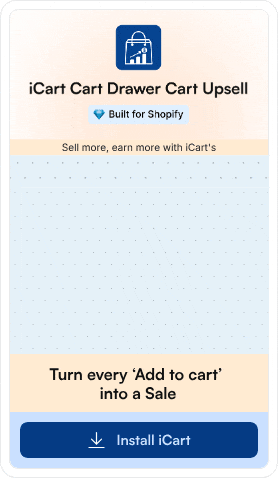




About the author
Vineet Nair
Vineet is an experienced content strategist with expertise in the ecommerce domain and a keen interest in Shopify. He aims to help Shopify merchants thrive in this competitive environment with technical solutions and thoughtfully structured content.